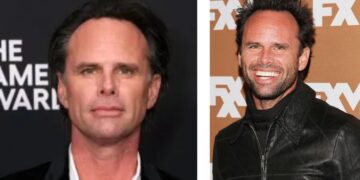In the sprawling world of European cinema, where visionary directors and screenwriters are often celebrated for their artistic contributions, one name continues to fly under the radar yet holds an unshakable place in the fabric of film history — Carlos Scola Pliego. Often revered by film scholars and deeply respected in creative circles, Carlos Scola Pliego is a Spanish filmmaker, director, and scriptwriter whose work has transcended boundaries, both geographically and stylistically. While his name may not be as instantly recognizable as Almodóvar or Buñuel, his impact is nevertheless significant and quietly enduring. His contributions lie not only in the films he’s created but in the influence he’s had on narrative storytelling, cultural representation, and the emotional depth of character-driven cinema.
Quick Bio
| Personal Details | Information |
| Full Name | Carlos Scola Pliego |
| Date of Birth | Unknown |
| Place of Birth | Spain |
| Nationality | Spanish |
| Ethnicity | European |
| Religion | Catholic |
| Profession | Film Director |
| Known For | Ex-husband of Sade Adu |
| Marital Status | Divorced |
| Ex-Wife | Sade Adu |
| Marriage Date | October 11, 1989 |
| Divorce Finalized | 1995 |
| Children | None |
| Current Residence | Likely Spain (Private) |
| Estimated Net Worth (2025) | $70 Million |
A Humble Beginning: The Origins of a Storyteller
Carlos Scola Pliego was born in Spain, a country steeped in historical turmoil, artistic richness, and a cultural mosaic that naturally breeds storytellers. Although limited public information exists about his early years, it is widely believed that he was influenced by both Spanish and broader European cinematic traditions. Spain in the mid-20th century was undergoing significant social and political shifts. The Francoist dictatorship had a major influence on art and censorship, leading many artists and filmmakers of the era to adopt more nuanced, metaphorical, and emotionally charged storytelling methods. It is within this fertile artistic soil that Carlos Scola Pliego began cultivating his love for film and visual narrative.
From a young age, he was fascinated not just with the idea of entertainment, but with film as a form of artistic communication — a way to explore emotions, depict historical truths, and challenge the conventional. His exposure to global cinema, especially the works of Italian Neorealists and French New Wave directors, would later reflect heavily in his approach to filmmaking.
The Cinematic Identity of Carlos Scola Pliego
Unlike mainstream directors who often chase box office success or visual spectacle, Carlos Scola Pliego’s films are defined by their emotional gravity, narrative depth, and cultural resonance. He is not a director of superficial glamour; he is a curator of human experience. His cinematic identity is rooted in realism, philosophical inquiry, and the exploration of identity — both personal and national. He crafts stories that feel grounded, real, and unapologetically honest.
Carlos Scola Pliego has a reputation for weaving complex characters who confront inner turmoil, moral dilemmas, or societal struggles. He often uses slow, deliberate pacing to draw viewers into a character’s psyche. His camera doesn’t just follow a story; it lingers on silence, on unspoken emotions, and on moments of transformation. This approach positions him more in line with auteurs who believe that cinema is an intellectual and emotional experience, not just a visual one.
The Influence of Spanish Culture and History in His Work
It would be impossible to understand Carlos Scola Pliego’s films without recognizing how deeply they are embedded in Spanish history and cultural memory. His work often reflects the tension between Spain’s traditional values and modern evolution. Themes such as familial legacy, generational trauma, post-war identity, and rural-urban divides recur across his filmography.
Through his lens, audiences get a glimpse into Spain’s lesser-seen realities: the quiet life in isolated villages, the intergenerational dialogues between old and young, the grappling with Catholic morality, and the shadows cast by political upheaval. His narratives do not just entertain — they educate and provoke thought. Whether directly or subtly, Pliego’s stories often echo Spain’s historical consciousness, using personal stories as microcosms for broader social commentary.
Notable Works and Collaborations
Though not widely distributed internationally, some of Carlos Scola Pliego’s notable works have gained critical acclaim in festival circuits and among academic circles. Titles such as “El Rastro del Olvido” (The Trail of Forgetfulness) and “Sombras del Silencio” (Shadows of Silence) are often referenced in discussions of post-Francoist Spanish cinema. These films delve into themes of memory, silence, and suppressed identity — issues that haunted Spain during its transition to democracy.
He has also collaborated with renowned actors, playwrights, and cinematographers in the Spanish-speaking world, choosing artistic integrity over commercial appeal. Many of his collaborators have noted Pliego’s meticulous approach to character development and storytelling. He is known for rehearsing with actors for months before even stepping on set, ensuring every performance is emotionally authentic and aligned with the story’s vision.
The Auteur Philosophy: Art Over Commerce
Carlos Scola Pliego is often described as an “auteur,” a term used to characterize directors who leave a distinct personal stamp on their work. Unlike directors employed for hire to fulfill a studio’s vision, auteurs direct films that embody their personal philosophies, experiences, and artistic inclinations. Pliego fits this description perfectly.
He rarely makes concessions for mass appeal. Instead, he chooses to focus on stories that matter to him, no matter how uncomfortable or niche they may be. This philosophy has kept him outside the mainstream, but it has also allowed him to maintain full creative control over his projects. For Pliego, cinema is a sacred space — a canvas for human truth, not a vehicle for fleeting trends.
Critical Acclaim and Academic Recognition
Although Carlos Scola Pliego’s work may not enjoy blockbuster status, it has not gone unnoticed in critical and academic circles. Film schools across Spain and Latin America often include his films in curriculum modules exploring European independent cinema, cultural identity in film, and post-conflict narratives. Critics frequently praise his commitment to realism and his refusal to compromise the integrity of his stories.
He has been nominated for several awards in national film festivals and has received recognition for his contributions to cultural preservation through cinema. Film historians consider his work to be instrumental in bridging the gap between old-world Spanish narratives and modern cinematic expression.
Personal Life: A Man of Mystery
One of the most intriguing aspects of Carlos Scola Pliego is his reclusive nature. Unlike many contemporary directors who maintain a strong media presence or promote their work through social platforms, Pliego remains largely out of the public eye. Very little is known about his personal life, family, or off-camera persona. This self-imposed distance may be a deliberate attempt to let his work speak for itself, free from the noise and spectacle of fame.
His rare interviews are thoughtful and introspective, often focused more on philosophy and the role of cinema in society than on personal achievements or gossip. This adds to his mystique and has, in some ways, enhanced his status as a serious, uncompromising artist.
Legacy and Cultural Impact
Carlos Scola Pliego’s influence on modern Spanish cinema cannot be overstated, even if his name is not widely recognized by the average moviegoer. He has inspired a generation of independent filmmakers who view film not just as a form of entertainment, but as a moral, emotional, and cultural responsibility. His focus on storytelling with depth, his refusal to sell out to commercialism, and his exploration of national identity have set a high standard for what cinema can be.
In an era where digital effects and flashy narratives dominate, Pliego’s commitment to substance over style serves as a refreshing reminder of film’s original power — to tell human stories with compassion, honesty, and intelligence.
Looking Ahead: Is Carlos Scola Pliego Still Creating?
As of the latest available reports, Carlos Scola Pliego has not retired from filmmaking. Although he works at his own pace and chooses projects sparingly, he remains actively involved in script development and artistic collaborations. Rumors of a new film project set against the backdrop of contemporary Spain have circulated in niche film forums, though nothing official has been announced.
Given his body of work, any new release by Carlos Scola Pliego is likely to be met with anticipation by those who appreciate nuanced, artistic cinema. As always, his projects are expected to challenge viewers emotionally and intellectually, staying true to the ethos he has built over decades.
Frequently Asked Questions (FAQs)
1. Who is Carlos Scola Pliego?
- Carlos Scola Pliego is a Spanish film director and screenwriter known for his emotionally rich, culturally rooted, and introspective storytelling. He is considered an auteur in European independent cinema.
2. What kind of films does Carlos Scola Pliego make?
- Pliego’s films are typically character-driven, emotionally intense, and centered around themes of memory, identity, culture, and societal tension. He often explores Spain’s historical and cultural complexities.
3. Is Carlos Scola Pliego a well-known filmmaker?
- While not a household name globally, he is highly respected in academic, critical, and film industry circles, particularly within Europe and Latin America.
4. What are some notable films by Carlos Scola Pliego?
- Some of his critically acclaimed works include “El Rastro del Olvido” and “Sombras del Silencio,” though his full filmography is limited and selectively released.
5. Why is Carlos Scola Pliego rarely seen in public?
- Pliego is known for being a private individual who prefers to let his work speak for itself. He rarely makes public appearances or gives interviews, adding to his mystique as a filmmaker.


















